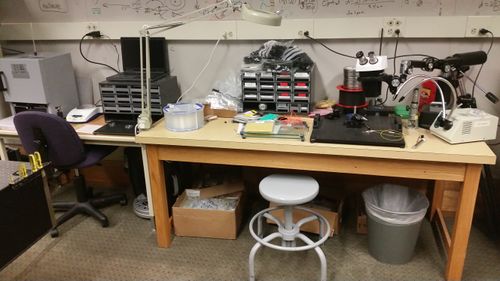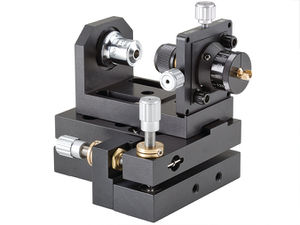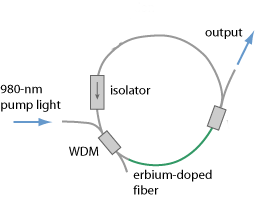Fiber-Optics Obstacle Course
- Read the first 4 chapters of John Crisp's eBook, "Introduction to Fiber Optics". Consult remaining chapters as needed.
- Look over the APL's Fiber Optics Wiki page Fiber Optics and links therein.
- Consulting Thorlab's Fiber Polishing Manual Fiber Polishing and Connectorization and the (above mentioned) eBook construct a 1 meter SM FC-APC to FC-APC fiber patch cable (you will find everything you need at the fiber polishing station).
- Measure power loss through your patch cable.
- Break your patch cable in the middle and repair it with a fusion splice (see fusion splicer manual Fusion Splicer Manual and eBook.
- Measure the power loss through your fusion spliced patch cable.
- Break the fusion splice out of the patch cord leaving two partly-connectorized fibers.
- Strip and cleave the unconnectorized end of one of the fibers and use the free-space-to-fiber coupler
to couple a free space beam into the SM fiber (our coupler is not quite as that shown at the right).
- Use a 50/50 fiber splitter/combiner to split your fiber coupled beam into two approximately equal beams. Measure the power in each output beam.
- Use a 1550nm Fiber-coupled LD and a 980 nm fiber-coupled LD and a 1550/980 WDM (wavelength division multiplexer) to combine the 980 and 1550 nm sources into a SM fiber.
- Verify that a fiber isolator exhibits low power loss in one direction only.
- Construct an Erbium-Doped SM Fiber Ring Laser. Measure its optical power vs. pump current/power curve. See here for more details


